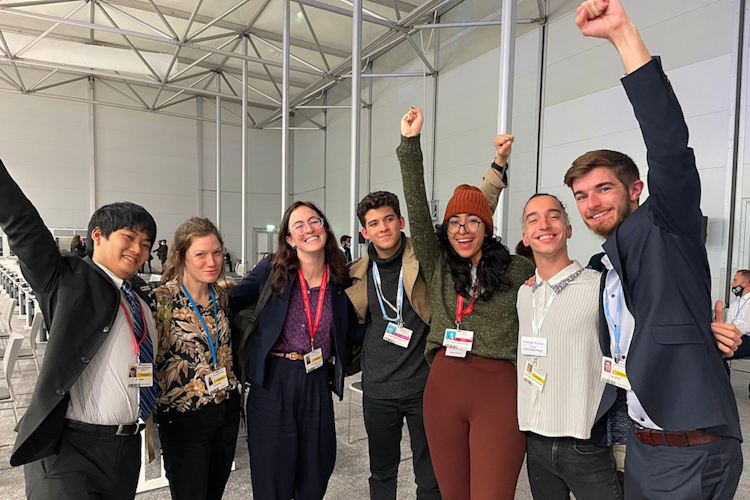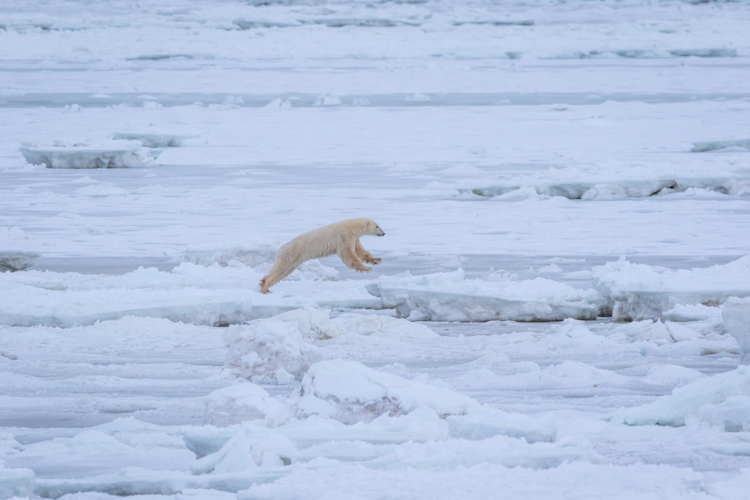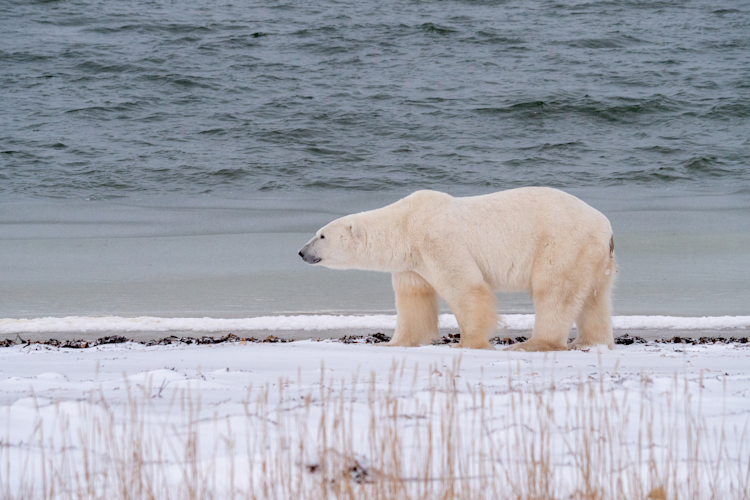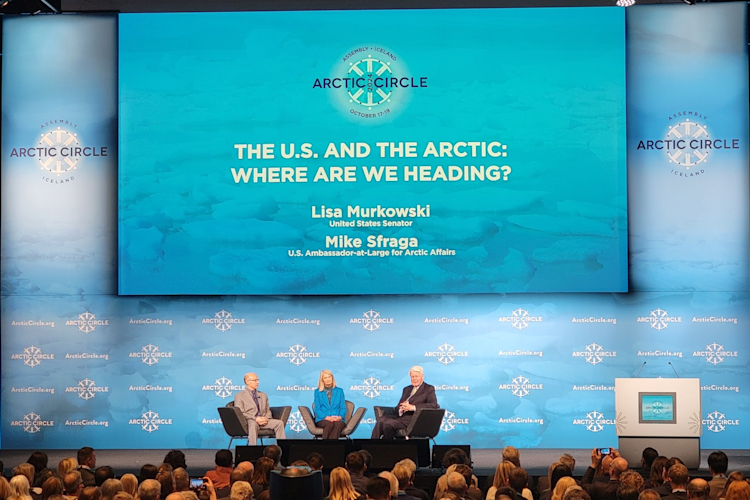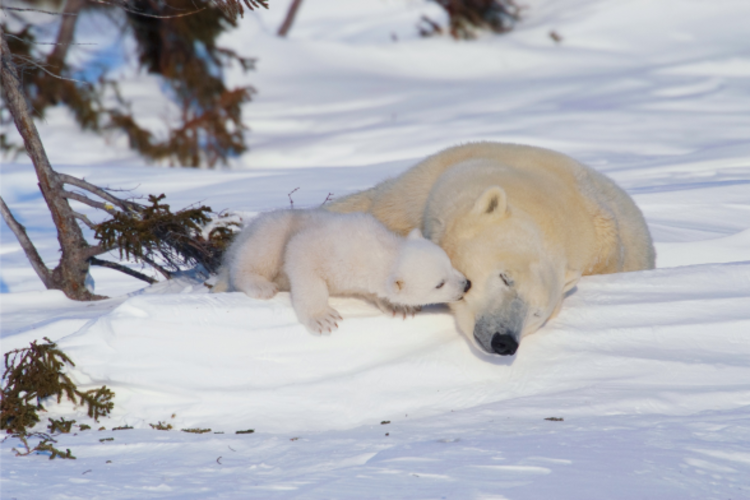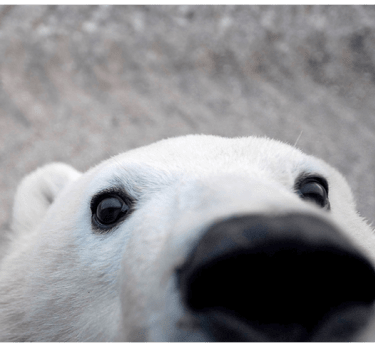Young people are the heartbeat of progress, bringing fresh eyes to a world they have yet to become desensitized to—a world they will inherit. We look to young people for energy, higher ideals, and hope that a brighter future will outcompete our greatest fears.
Climate action is urgently important for future generations of polar bears and people. At the U.N. Climate Conference in Glasgow, Scotland—also known as COP26—the young generation sought to be heard amidst the commotion. Delegates praised young people for their leadership and activism, but few were given the opportunity and mentorship to participate in the proceedings in a meaningful way. Panama’s negotiating team provided a notable exception.
During a formal meeting between all 195 national governments and the U.N. President, Panama handed their precious floor time to a small group of young leaders who were eager to add voice to this important conversation about climate action. In this window, Panama’s deputy lead negotiator Mari Helena Castillo Mariscal, 25, delivered a speech co-written by dozens of young people at COP26, including Polar Bears International’s delegation. Thanks in large part to our delegate and impact producer Alex Haraus, over 21,000 young people from 140 nations co-signed the speech in less than a day. These climate negotiations are exclusive and difficult to attend so when Mari delivered the statement, she brought thousands of voices from all corners of the world into the room. See the full statement at the end of this article. You can watch the speech here and read a Washington Post article about the experience here.
Christopher J. Carter has represented Polar Bears International at these climate negotiations for six years, and he reported a shift among young people at COP26. “I witnessed a powerful, excited, and humble collective of people under 35 years old charging head on in the face of complicated economic and political interests. They stressed that keeping warming to 1.5 degrees Celsius is a lifeline for much of the world’s people and ecosystems, including the Arctic. As we said in the statement, ‘1.5 is the simplest moral choice in all of history’.”
This intervention may not have concretely shifted the terms of negotiations in the meeting hall that day, but it did remind global leaders that the studies and statistics they build national policy from represent real human lives—current and future. For our international coalition of young people, modeling the collaboration, intersectionality, and boldness we hope to see among leaders was a practice of hope in an unpredictable time.
“We, the most connected generation can see the pain and light in each other, and know the movement is not big enough yet. We know we simply cannot cut anyone down or leave anyone out—we need all hands on deck. We are on one team, even if algorithms and politicians try to tell us otherwise.” – Christopher J. Carter
Climate warming has no borders and no preferential treatment. We all need to be a part of the conversation, planning, and action. As Panama’s lead negotiator Juan Carlos Monterrey Gómez says, “Government will only move as fast as civil society wants it to move.” Every vote, every call, every demonstration applies pressure on governments and corporations to make tangible and earnest moves towards a just energy transition and to protect the most vulnerable people and ecosystems along the way.
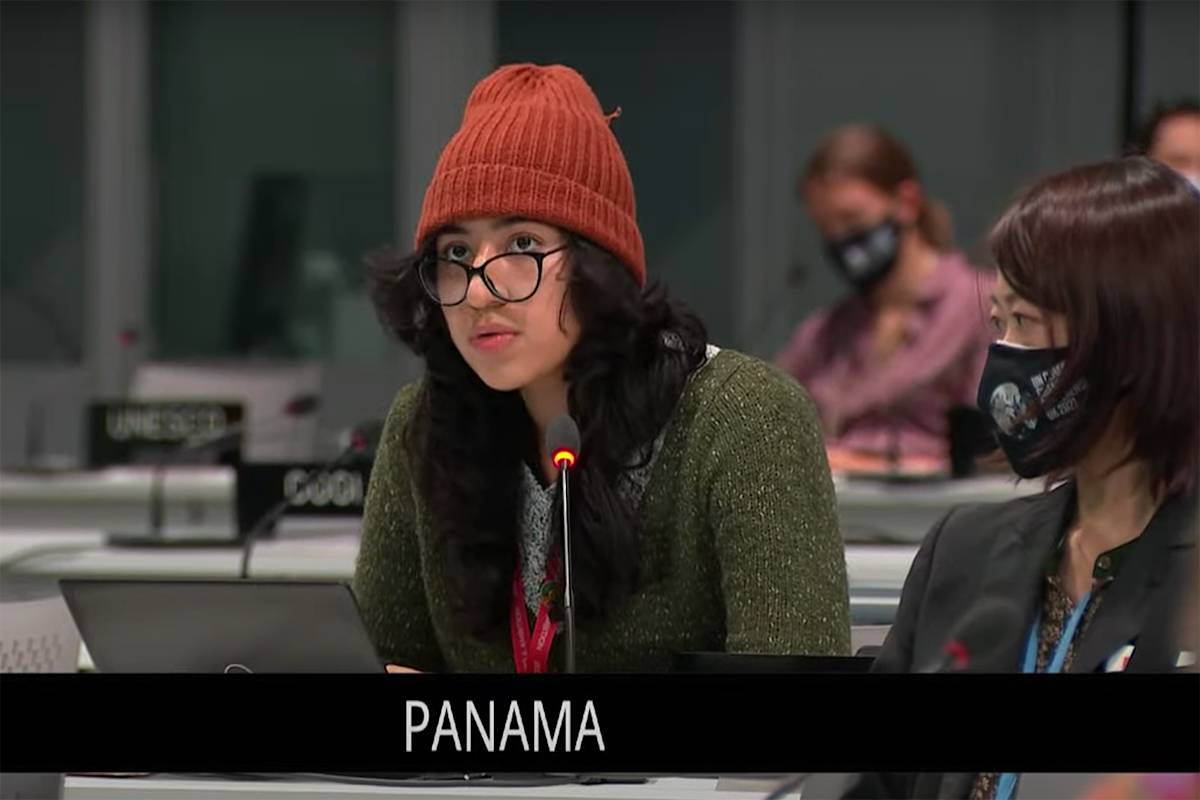
One Act of Hope at a Time at the U.N. Climate Conference
By Emily Ringer, Senior Manager of Communications and Advocacy
MINS
19 Mar 2022
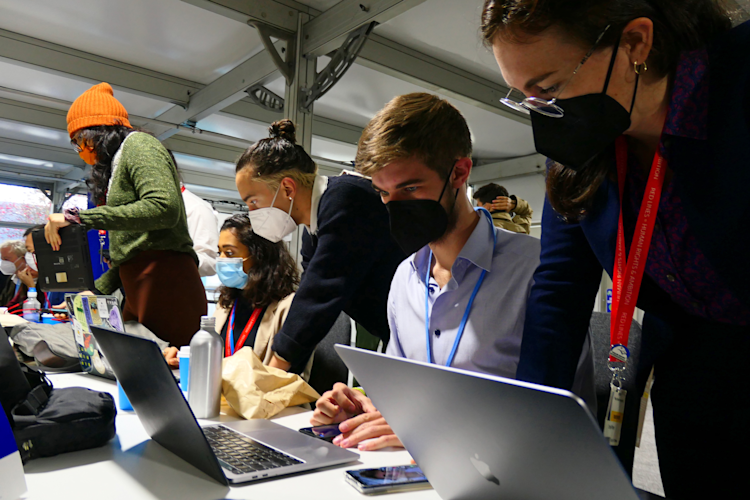
Youth Coalition Speech
We are Indigenous leaders, lawyers, researchers, organizers, and artists.
We’ve changed laws and defended land through social media, direct action and divest billions.
We decide elections.
We pressured you into the climate agreement in Paris, yet we are excluded from full engagement for its implementation.
This must change.
This is a message for state and corporate leaders: We’re not going anywhere. We will use our growing power to hold you accountable.
You say your actions are “ambitious,” but your "ambitions" keep us on track to a fatal 2.4 degrees of warming.
We look to you as global leaders, YET your actions are failing us.
Leaders don’t settle for anything less than 1.5.
Leaders defend people and biodiversity above profit and politics.
Leaders present NDCs that actually get us to real zero.
Leaders bring youth from all genders, Indigenous Peoples and the most marginalized to the negotiating table.
Leaders give youth the power to negotiate their own future, as Panama did.
Leaders reach 1.5 by safeguarding human and indigenous rights, including in the design of article 6 mechanisms.
Leaders reach 1.5 by cutting emissions at the source and funding solutions that end intersectional oppressions and systemic violence.
Leaders build resilience with nature through decentralized and community-led solutions.
Leaders reach 1.5 while financing loss and damages by funding the least responsible and most affected.
Leaders act with INTERSECTIONALITY at. all. times.
Leaders see the response to COVID-19 as the single greatest generational opportunity for climate action and economic justice.
1.5 is the simplest moral choice in all of history.
Paris promised 1.5, but lack of leadership is giving us 2.4 degrees of deadly warming.
1.5 is not a choice.
It is a necessity, a moral obligation, a lifeline.
To be clear: don’t want to feel heard; what we want is our positions included in the agreement which addresses the climate emergency that comes out of Glasgow. You must take actions immediately to ensure 1.5.
Lead. Be bold.
Original authors: Alex Haraus, Antonio Muñoz, CJ Carter, Emily Ringer, Jes Vesconte, Joanna Sulich, Juan Monterrey Gomez, Kat Hamilton, Karime Mojica, Mari Castillo, Ruth Miller, Shrina Kurani
